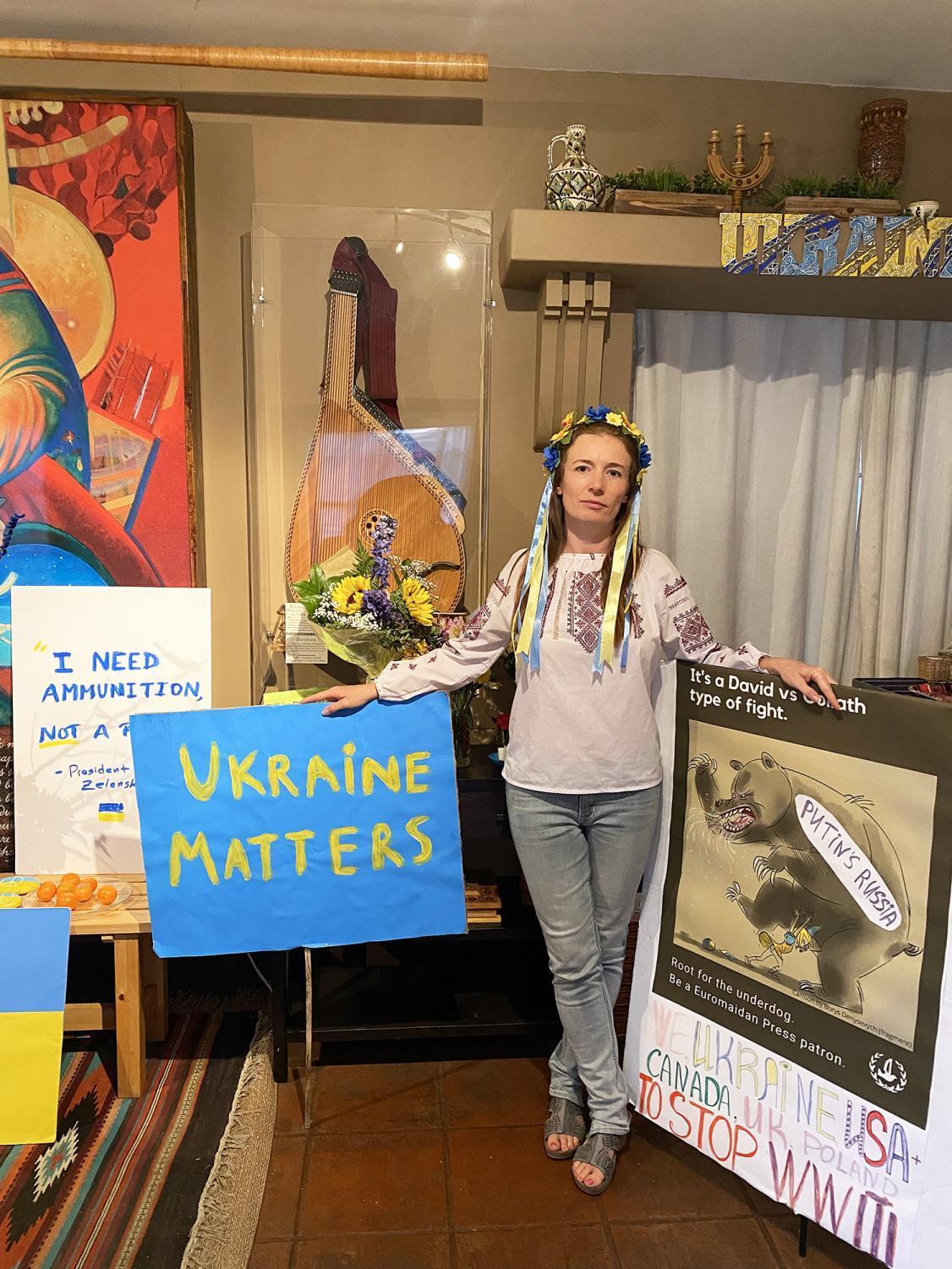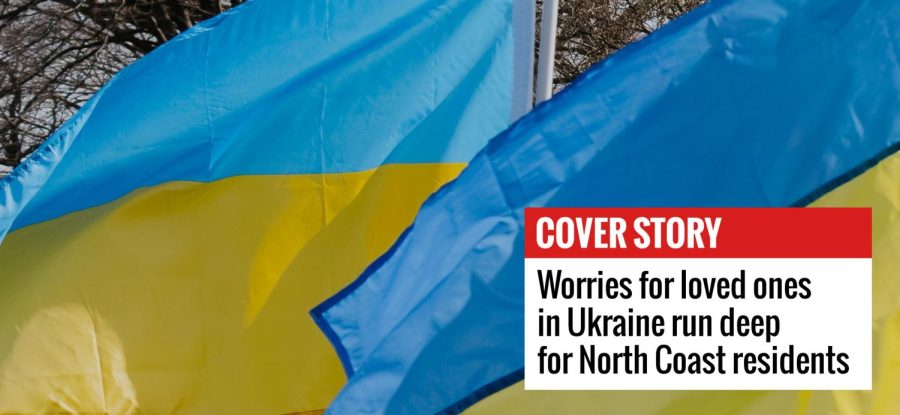Worries for loved ones in Ukraine run deep for North Coast residents
Service members’ safety, nuclear stability, humanitarian aid among concerns
An unexpected text message from a friend was all it took.
What started off as a normal work day quickly turned south in a matter of seconds for Luke Miller, a local San Diegan of Ukrainian descent and member of St. John the Baptizer Ukrainian Catholic Church.
Shortly after hearing the chime of a new message, Miller found the following words on his phone screen: “Russia is invading.”
On Thursday, Feb. 24, Russian forces invaded Ukraine following a televised speech given by President Vladimir Putin announcing the start of a “special military operation.”
Storming in from the north, east and south, Russian troops have used cruise missiles, artillery and airstrikes to target the capital, Kyiv, Ukraine’s second-largest city, Kharkiv, and other areas, according to Ukrainian officials.
Miller, anxious for his relatives living in Ukraine, turned to Twitter — a platform now flooded with images and videos of the explosions — to stay informed. He said he was in disbelief to learn his home country was at war.
“That’s hard to see,” Miller said. “When there are innocent children and old people being killed, it’s not pleasant.”
A similar sentiment was shared by Justin Stasiuk, a Carlsbad resident who grew up in Oceanside and has family spread all across Ukraine.
While Stasiuk said he fears the obvious perils of bombs and weaponry used by Russia, there is one other concern weighing heavily on his mind: nuclear radiation.
Ukraine, home to four major nuclear plants, depends on nuclear power to generate half of its electricity.
On Friday, March 4, the Zaporizhzhia nuclear power plant in southeast Ukraine, the largest one in Europe, was hit, causing a fire in a building outside the premises.
While the blaze was put out and the radiation at the plant remained “within normal limits,” the threat of nuclear damage due to a potential explosion remains a concern for Ukrainians.
“These missiles launched by Russia that struck the nuclear plants are unleashing nuclear events that can impact the entire world,” Stasiuk said about the event.
If an explosion were to occur at any of the four major power plants in Ukraine, an event echoing the nuclear disaster of Chernobyl could ensue.
In 1986, the worst nuclear disaster unfolded at the power plant of Chernobyl when two explosions caused a reactor to release “400 times more radiation than the atomic bomb dropped on Hiroshima.”
Two workers were killed, almost 30 died of radiation exposure and thousands experienced health issues caused by the radiation, among them, cancer.
If another disaster like this happens, Ukrainians could face a substantial number of deaths in the country in addition to the catastrophe already on file.
About a week after the start of the invasion, the first report of military casualties was released last Wednesday.
According to the Russian Defense Ministry, 498 soldiers have been killed and 1,500 wounded. The report also stated that more than 2,800 Ukrainian forces have died.
Ukraine’s military reported that more than 5,800 Russian troops were killed in combat. United States intelligence this week set the number between 2,000 and 4,000.
Although these figures have not been verified independently, terror continues to cloud over the local Ukrainian community as it fears for the lives of loved ones abroad.
Especially those with relatives actively fighting on the front line.
Take Khrystyna Chorna, a San Diego resident for 15 years and real estate agent in Del Mar, for example.
Her brother, Nazar Chorna, left his job as a teacher in Ukraine to fight for his country. She said he has about three months of military training.
Nazar is among the many to have joined the Ukrainian forces following President Volodymyr Zelensky’s announcement that he will give weapons to citizens who want to defend Ukraine.
Nazar was deployed in the area of the capital, Kyiv, when the war started. He is 35 years old and married with three children.
“(It took) over a day to reach him,” Khrystyna said. “I’m glad to say that he’s alive but I hate to say that it’s for now … we don’t know what’s going to happen.”
Uncertainty whether or not her family will make it out of the war safely has Khrystyna glued to her phone, using Telegram, one of the few applications that have service in Ukraine, to make sure her relatives are safe.
She said she won’t ever be able to forgive Putin for putting her family in danger, describing his actions as “cold, unnecessary and reckless.”
“He’s destroying our lives. He’s destroying our country,” Khrystyna said. “He needs to pay for this. This man needs to be brought to justice.”
Another local Ukrainian passionate about bringing not only justice but survival necessities to her home country is Mira Rubin, president of the House of Ukraine, a cultural organization in Balboa Park.
“We don’t do war stuff but the times are different,” Rubin said. “We have to mobilize everyone and everything.”
Under Rubin’s leadership, the organization is accepting monetary donations used to fund frontline first aid kits and other items. Body armor such as bulletproof helmets and vests are also being accepted.
For more on how to help Ukraine or to donate to American nonprofits suggested by the House of Ukraine, visit houseofukraine.org.
Roxana Becerril is a local freelance writer.

encinitas current, cardiff current



